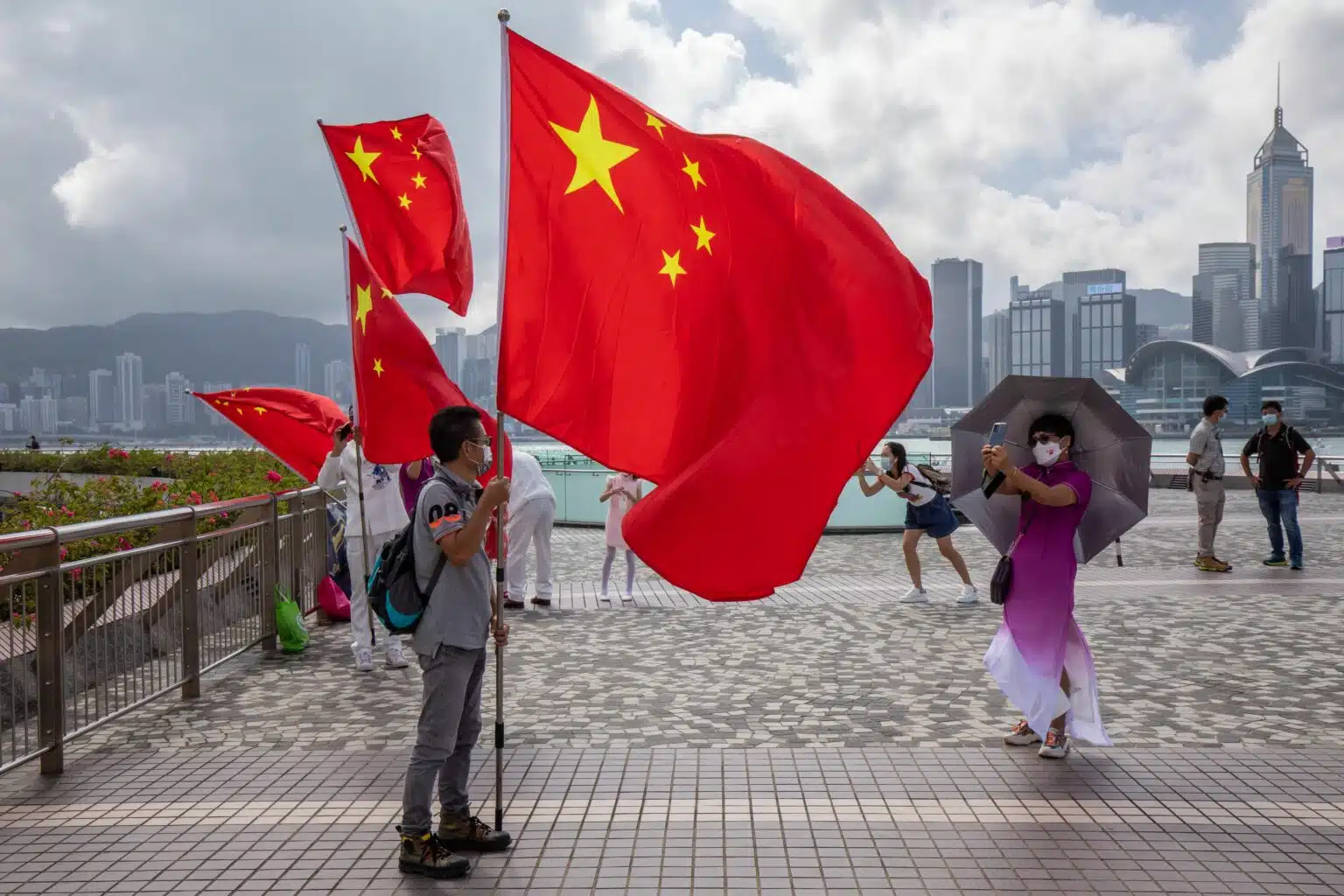As Beijing intensifies Covid lockdowns, limiting travel for tens of millions of people, a completely different situation is playing out in Hong Kong.

The mood in the Chinese-controlled city is likely at its lightest in three years, when officials removed mandatory hotel quarantine for incoming guests in September, spurring a wild rush to book flights out of the city among travel-starved inhabitants.
It was a significant U-turn, Beijing given how steadfastly city officials had adhered to the quarantine mandate, despite a collapsing economy, a deteriorating worldwide reputation, and other factors.
Throughout the pandemic, Hong Kong followed Beijing’s strict “zero-Covid” approach, which aims to eliminate community transmission through border controls, social distancing measures, electronic track-and-tracing, and quarantine – which required incoming travellers to isolate in a hotel room for up to three weeks at their own expense.
Throughout the pandemic, Hong Kong followed Beijing’s strict “zero-Covid” approach, which aims to eliminate community transmission through border controls, social distancing measures, electronic track-and-tracing, and quarantine – which required incoming travellers to isolate in a hotel room for up to three weeks at their own expense.
When Hong Kong was attacked by a catastrophic Omicron wave in early 2022, the case numbers skyrocketed. Since then, the numbers have remained high.
Despite zero-ineffectiveness Covid’s un dealing with fast-spreading variations, officials held hard for another nine months, emphasising that their top objective was reopening the border with mainland China.
So, what changed, and why has Hong Kong been able to do what the rest of China has not?
According to experts, several reasons are at work, including the relatively steady Covid situation and a change in government leadership. But, more crucially, it is an attempt to alleviate the dismal economic situation in both Hong Kong and the mainland, as well as an acknowledgement that, despite Beijing’s broad crackdown in the city, the city still serves as a gateway to the West.
The Comeback of Asia’s World City?
Several experts stressed that the first and most basic condition for Hong Kong’s reopening was the Covid situation, with instances having decreased to a manageable level – even if they still number in the thousands every day.
“Given that Hong Kong has nowhere near zero daily instances,” said Benjamin Cowling, chair of epidemiology at the University of Hong Kong, “I would believe that there’s no chance of having an open border with the mainland” (HKU). “
Hong Kong has long been known as “Asia’s World City,” a worldwide hub that attracts tourists, expats, and multinational corporations. Zero-Covid has put all of that at risk, with planes grounded and corporations looking elsewhere in Asia.
“If Hong Kong remains closed to international tourists while the rest of the world is open, Hong Kong would lose its worldwide financial standing soon,” warned Vera Yuen, an economics lecturer at HKU.
“You need enough firms, skill, and resources to join together… It’s getting close to the point where we could lose everything.”
Since the outbreak, waves of residents, both expats and Hong Kong locals, have fled the city. According to the Census and Statistics Department, around 113,200 residents departed Hong Kong in the previous year, up from 89,200 the previous year.
More bad news arrived in September, when the city’s financial secretary revealed that the city might face a budget deficit of more than 100 billion Hong Kong dollars (approximately $12.7 billion), the second-highest fiscal deficit ever recorded.
The Hong Kong Sevens rugby tournament and the Global Financial Leaders’ Forum, which attracts executives from the world’s largest financial organisations such as Goldman Sachs and Morgan Stanley for a two-day summit, have added to the mounting pressure.
According to media reports from August, major banks informed their executives that they would only go if there was no quarantine – a widely assumed element in the government’s final decision.
Yuen described it as a “wonderful victory” to have “all the major heads, the superstars from banks, hedge funds, and so on come to our conference.” “They’re saying to the rest of the world that we’re not going to stay like this – we’re going back to the competition, don’t forget us, we’re still a gleaming international financial hub,” says one analyst.
Western intermediary
This fixation on rejoining the international community may appear surprising in light of Beijing’s efforts to further subjugate Hong Kong.
The Hong Kong and central governments have virtually eliminated the city’s opposition since 2020. Pro-democracy activists have been imprisoned or exiled, and independent news outlets have been closed; in the meantime, authorities have changed school curricula to emphasise Chinese history and culture, and pushed for greater economic cooperation in the Greater Bay Area, a national scheme to connect Guangdong province with Hong Kong and Macau.
Some experts argue that pushing Hong Kong as a global hub while further integrating it with the mainland is not at all contradictory to Beijing.
“They desire both; they don’t believe they are mutually exclusive,” said Yuen












